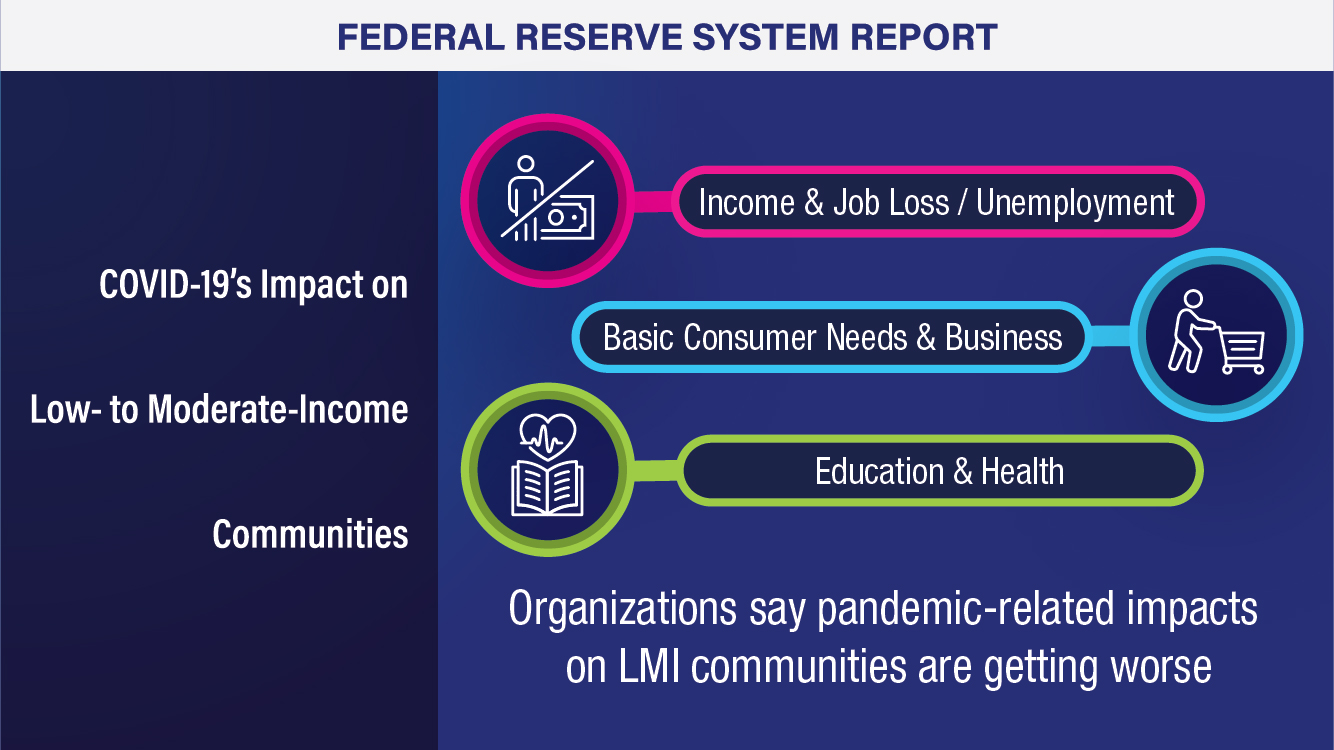Fed Survey: Conditions Worsen in Low- to Moderate-Income Communities Due to COVID-19
ST. LOUIS — A Federal Reserve survey co-authored by the St. Louis Fed shows that many months into the pandemic, multiple aspects of life — from employment and education to public health — are deteriorating in low- to moderate-income (LMI) communities.
The national pulse survey, Perspectives from Main Street, was fielded in October with a mix of government agencies, nonprofits, financial institutions and community organizations. The Fed has regularly surveyed these organizations about COVID-19 since April 2020.
Of 1,127 total respondents in October, 139 were from the St. Louis Fed’s Eighth District, an area comprising all of Arkansas and parts of Illinois, Indiana, Kentucky, Mississippi, Missouri and Tennessee.
Here is what Eighth District organizations said:
- 50% said income loss, job loss or unemployment impacts from COVID-19 got modestly or significantly worse since August, while 29% said these got modestly or significantly better in their LMI communities.
- 34% said impacts on basic consumer needs (changes in needs for housing, food and other personal needs) worsened; 28% said they observed no change; 32% reported things got better.
- 38% indicated that disruptions to business (e.g., closures, supply chain disruptions or reduced demand) worsened, whereas 33% said things got better.
- 53% reported that impacts on education got worse, such as through disruptions to childcare, K-12 and higher education; only 19% said things got better.
- 37% reported no change in the health category, while 36% said community health impacts worsened. This included changes in access to adequate health care and insurance, or impacts on mental and physical health. Only 22% said things got better since August.
“Continuing to listen to front-line organizations working to support local communities is critical to shaping effective policies and programs. This pulse survey helps amplify their voices as we try to understand the ongoing impact of COVID-19 on vulnerable populations, businesses and community-based organizations,” said Daniel Paul Davis, a report co-author and the St. Louis Fed’s community affairs officer.
>View full Eighth Federal Reserve District results from October 2020 (PDF).
>View the national results from October 2020 (PDF).

About Community Development: The St. Louis Fed seeks to promote the economic resilience and mobility of individuals and communities, including LMI and underserved households. Increasing economic opportunity is good for individuals and communities and vital to the overall economy.
-
Anthony Kiekow
314-949-9739
-
Shera Dalin
314-591-3457
-
Tim Lloyd
314-202-1381

